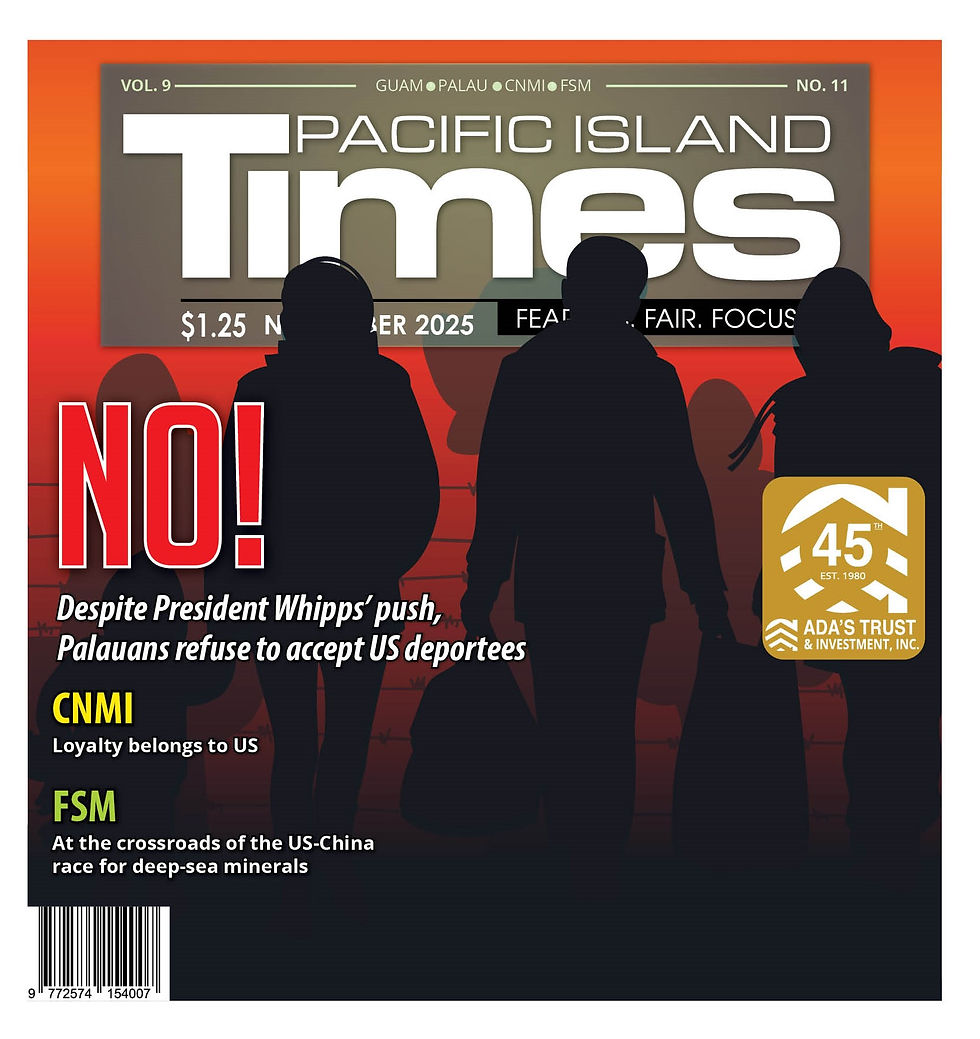Starfish set to build Guam portion of Bulikula subsea cable in December
- Admin

- Nov 26, 2025
- 2 min read

By Mar-Vic Cagurangan
Starfish Infrastructure Inc., a Google subsidiary, is seeking the Federal Communications Commission’s approval to build and test the Guam portion of the Bulikula submarine fiber ring, pending issuance of the company’s cable landing license.
Starfish said the Bulikula system is currently set to be installed on Dec. 16, hence its request for special temporary authority "to ensure that cable-laying activities in U.S. territory may proceed on schedule."
Google applied for FCC cable landing approval in November 2024. The initial review began in May this year, but the federal shutdown forced the FCC to pause the process on Oct. 1 due to the lapse in federal appropriations.
“A delay in the installation would impose substantial additional costs on Starfish and ultimately delay critical new transpacific connectivity," Starfish said.
Starfish is seeking a 180-day temporary authority, which will not entail commercial operation of the cable until the FCC issues the cable landing license.
Bulikula, which Google Cloud officially announced in January, will join Guam’s existing subsea cable portfolio, connecting the island to Fiji and French Polynesia. The Northern Mariana Islands and Hawaii will also be part of the network.
There are currently 12 submarine cables landing on Guam, with seven more expected to launch next year, positioning the U.S. territory as a crucial telecommunications hub for the Asia-Pacific region.

Starfish noted that the FCC has previously granted pre-license special temporary authority, allowing construction for the Curie, JGA South, Pacific Light Cable Network, Echo, Apricot, Trans Pacific Underwater and Tabua systems.
“Starfish seeks the same authority here to construct, connect and test that portion of the Bulikula system in U.S. territory," Starfish said.
Bulikula will be the first system to directly link Guam, the CNMI and Hawaii to Fiji and French Polynesia, which has dual landing points.
"Dual landings provide landing path diversity, effectively providing redundancy in island connectivity in case of a single branch failure,” Starfish said. "This design also provides improved power resilience by increasing the number of single-end-feeding-capable configurations in the overall system, improving tolerance to shunt faults and thus better overall availability for the connectivity supported by the system."
The Bulikula cable system includes Telstra as a co-investor, along with Amalgamated Telecom Holdings and APTelecom.
Meanwhile, Developing Telecommunications, a website dedicated to telecom, reported that the Solomon Islands is set to get a new Australia-funded subsea cable connection that will interconnect with Bulikula.
The Australian Infrastructure Financing Facility for the Pacific announced last week that the Solomon Islands Submarine Cable Company and the governments of Solomon Islands and Australia have agreed to construct the 1,015-km Adamasia Cable System 1 connecting the islands with the Bulikula subsea system.
Subscribe to
our monthly
digital edition






